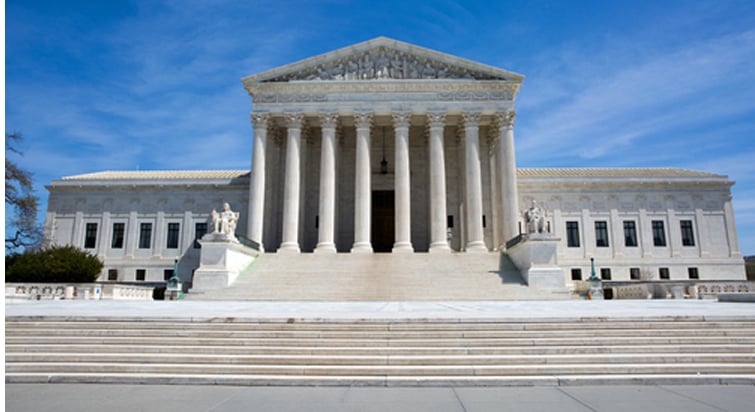Supreme Court declines to hear death row inmate's 'gay bias' case

Steven Frame / Shutterstock.com
On June 18, the U.S. Supreme Court declined to hear arguments in the case of Charles Rhines, a South Dakota prisoner who claims he was sentenced to death in part because he is gay. Rhines was convicted in 1993 of fatally stabbing 22-year-old Donnivan Schaeffer during a robbery in Rapid City.
While jurors were deciding his punishment, at least one commented that Rhines might actually enjoy spending his life in prison among men. Defense lawyers argued that anti-gay bias helped send their client land to death row. The Marshall Project recently wrote about the case in-depth. The court does not give reasons for rejecting a case, but an investigator for the South Dakota attorney general’s office interviewed jurors who did not recall these comments and said their decision was based on the crime itself and Rhines’ apparent lack of remorse.
Rhines’ lawyers argued that his experience was similar to other defendants whose jurors expressed racist sentiments. In recent rulings, the Supreme Court has ordered lower courts to re-examine convictions and sentences because of juror racial bias. Shawn Nolan, who oversees Rhines’ defense team at the Federal Community Defender Office in Philadelphia, called sexual orientation “a natural next step.” The state argued that sexual minorities are not in need of the same protection from discrimination as racial minorities. The justices’ decision to decline this case does not bar them from examining the issue in a different case in the future.
This article was originally published by The Marshall Project, a nonprofit news organization covering the U.S. criminal justice system. Sign up for their newsletter, or follow The Marshall Project on Facebook or Twitter.



